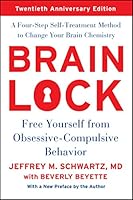Sublime
An inspiration engine for ideas
I Was the Poster Girl for OCD. Then I Began to Question Everything I’d Been Told About Mental Illness
Rose Cartwrighttheguardian.com




Psychologists have identified three types of dysfunctional belief important in the development of OCD. The first is an inflated sense of threat and personal responsibility. The second is perfectionism and intolerance of uncertainty. The third is a belief in the over-importance of thoughts and the need to control them.
David Adam • The Man Who Couldn't Stop
Newport Institute, a young adult mental health inpatient treatment center, has recently begun recruiting people suffering from “brainrot.” On its website, the Institute encourages parents whose children suffer from “screen dependency” and “digital addiction” to consider treatment plans at one of its locations across the country.
